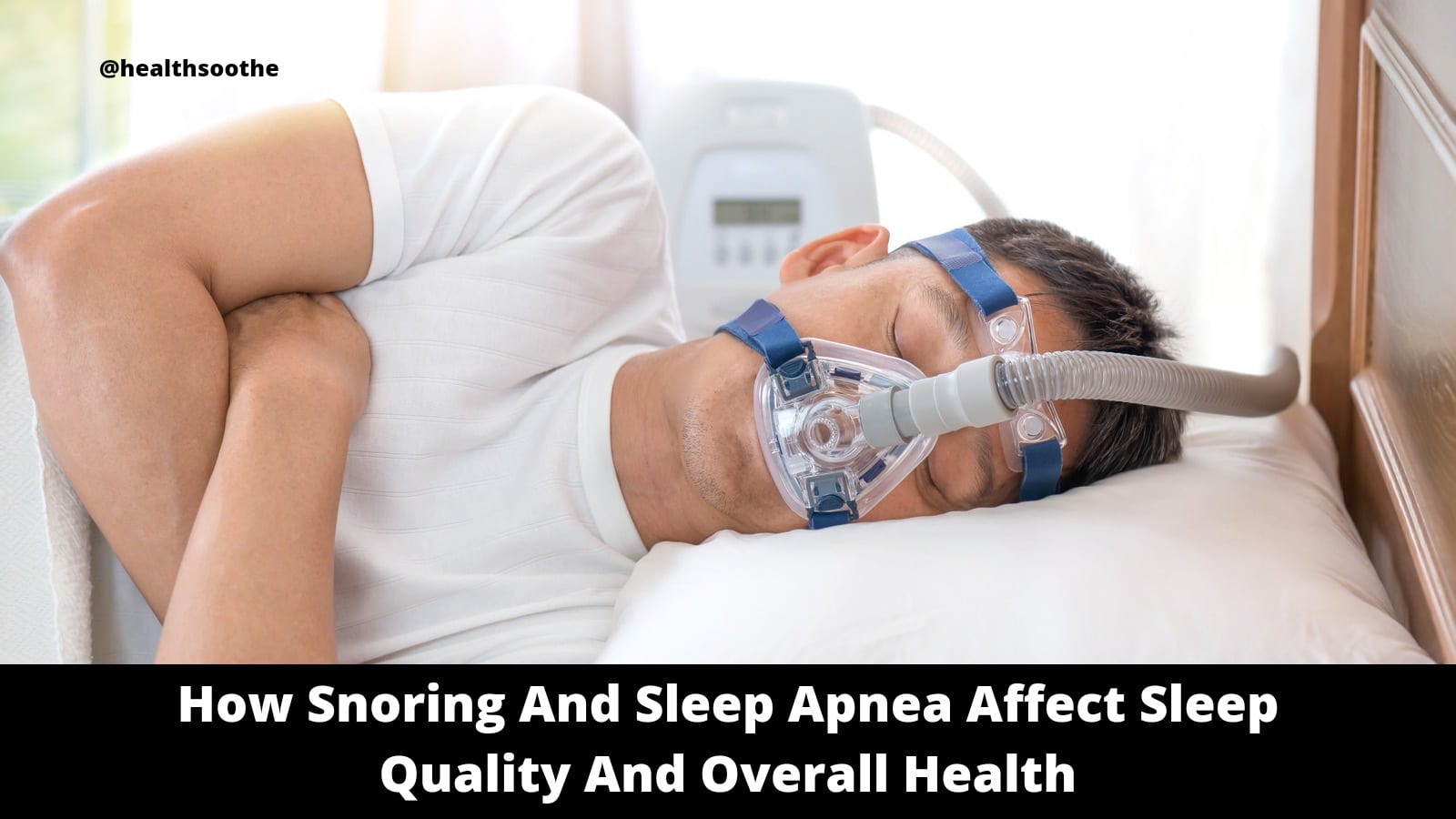Snoring may appear to be a trivial or unpleasant thing that people do while sleeping. Still, there may be much bigger dangers associated with it than just being annoying and embarrassing. If you regularly snore, you should be aware of the consequences if the problem is not addressed on time. It might just be your sleeping position or another minor issue if you just snore occasionally, which might not seriously affect your health.
Snoring brought on by sleep apnea has a variety of ailments that it can lead to, which makes it potentially dangerous.
What Are Sleep Apnea And Snoring?
Snoring is simply noisy breathing during sleep; however, sleep apnea is a far more serious problem. Snoring is frequently, if not always, brought on by sleep apnea, even though it can also be a separate illness.
The health condition known as sleep apnea prevents the body from getting adequate oxygen while sleeping. It results in snoring, breathing difficulties, and sometimes gasping during sleeping. If it is not addressed promptly, it can have extremely serious consequences, including the potential for memory loss and a decline in focus. Additionally, sleep apnea can cause serious health issues like heart disease and stroke.
Here are the implications of snoring and sleep apnea on your general health and sleep quality:
1. Your Sleep Cycle Is Disrupted
If you have sleep apnea, you don't get enough oxygen while you're asleep, and as soon as your body realizes this, it will try to get more oxygen into your body as quickly as it can, which could make you gasp. If you gasp while you're asleep, you might be roused from your slumber or, at the very least, an untimely transition from a night of deep sleep to a light one.
Your body may produce stress hormones as a result of the disruption of your sleep habits and insufficient sleep. And as you are likely aware, getting too little sleep has negative effects on your body and general health, including depression, weight gain, and premature aging of the skin.
2. Has An Impact On The Respiratory System
Sleep apnea can harm the functionality of your respiratory system since it causes your body to receive less oxygen. It can exacerbate respiratory conditions like asthma, reducing the likelihood that someone with both sleep apnea and asthma would survive. People with sleep apnea may find it difficult to breathe even during the day, which prevents them from engaging in physical activity out of concern about respiratory collapse.
3. Has Effects On The Circulatory System
Sleep apnea typically results in weight gain because the body produces hormones to deal with it. The heart may suffer greatly as a result of this weight increase. Circulatory failure can result from high blood pressure, which is often linked to sleep apnea. If not addressed as soon as possible, all these circulatory system issues could result in a stroke.
4. Affecting Your Endocrine System
Since sleep apnea affects the endocrine system, it may cause type two diabetes. Your blood sugar levels are regulated by the endocrine system using the insulin hormone that it produces. Therefore, your blood sugar levels will likely increase if the insulin is disturbed.
5. Breakdown Of The Nervous System
Additionally, sleep apnea can affect your nervous system, resulting in a rare type of sleep apnea known as central sleep apnea. The nervous system is in charge of sending signals to various parts of the body. This allows the body to function, and if the nervous system malfunctions, the body suffers as well. This is the case with sleep apnea, where the signals that regulate breathing while you sleep are disrupted. This may cause breathing difficulties while you sleep, and you may experience numbness throughout your body as a result.
Low Sex Drive And Infertility
People who suffer from sleep apnea are at risk of losing their sexual drive. Because sleep apnea can impair blood circulation and affect erectile function and lead to low libido; if left untreated, sleep apnea can harm your sexual life.
In addition, sleep apnea has been linked to low fertility and miscarriages in women. Over time, a lack of quality sleep may cause stress, which may result in DNA fragmentation. This DNA fragmentation may result in infertility or miscarriage.
Conclusion
If your snoring is accompanied by pauses in breathing while you sleep, you may have sleep apnea. Because sleep apnea causes a variety of health issues, you may require medical attention in this situation. If you suspect you may have a sleep disorder, it is important to seek professional help to diagnose and treat the problem.








